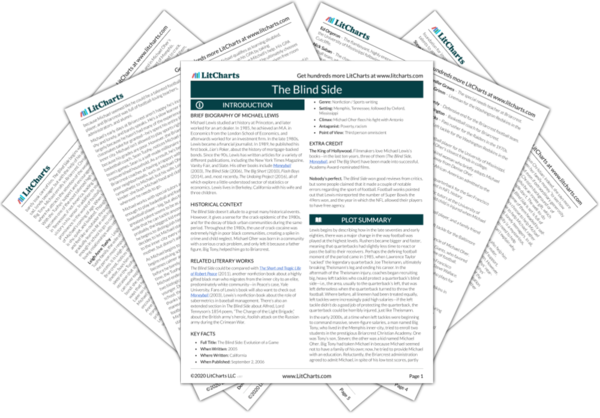Freeze is clearly more interested in Michael’s football abilities than his academics. Furthermore, it’s clear that, at Briarcrest, being good at football is more than just another extracurricular activity—in some ways, it’s more important than being a good student. Freeze and the Briarcrest president have some reservations about admitting a student who, the tests would suggest, has severe learning disabilities, but they have no reservations about admitting someone who can help the Briarcrest football team win some games. However, the Briarcrest administration at least tries to ensure that Michael will be prepared for his classes by asking Michael to take home study courses.


